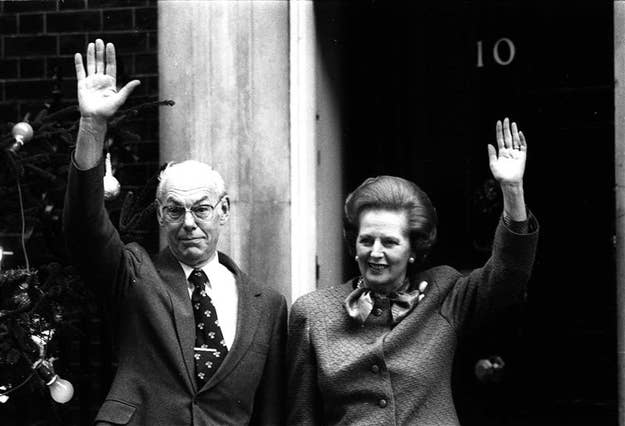
Although Baroness Margaret Thatcher had been one of the few conservative members of parliament to support the decriminalization of homosexuality in 1967, she took a far less progressive position 20 years later as prime minister.
At the height of the AIDS crisis, Thatcher's government took up the cause of those concerned about discussion of gay issues around children. At the Conservative Party Conference in October 1987, in a portion of her speech discussing education, Thatcher said, "Children who need to be taught to respect traditional moral values are being taught that they have an inalienable right to be gay."
Within the year, her government made an effort to stop that law, with the passage of Section 28, as it became known, of the Local Government Act of 1988.
The provision declared:
Prohibition on promoting homosexuality by teaching or by publishing material.
(1) A local authority shall not—
(a)intentionally promote homosexuality or publish material with the intention of promoting homosexuality;
(b)promote the teaching in any maintained school of the acceptability of homosexuality as a pretended family relationship.
Although it contained no criminal penalty, the law often was cited to as chilling discussion of gay rights issues within schools.
Section 28 was not repealed in Scotland until 2000 or in Great Britain and Wales until 2003.
Six years later, Conservative Party leader David Cameron, now the prime minister and a supporter of marriage equality, addressed the party's passage of the provision, saying, "I'm sorry for Section 28. We got it wrong. It was an emotional issue. We have got to move on and we have moved on. ... Yes, we may have sometimes been slow and yes, we may have made mistakes, including Section 28, but the change has happened."
The passage of the law, however, inspired a generation of activism in the country and was seen by some as the British equivalent of America's Stonewall riots.
As the actor Ian McKellen, who came out as gay in order to express his opposition to the provision in personal terms, put it in 2000 when repeal of the law was being debated, "The only good thing I can think to say about Section 28 is that it finally encouraged me to come out. A bit late in the day, but it remains the best thing I ever did."
